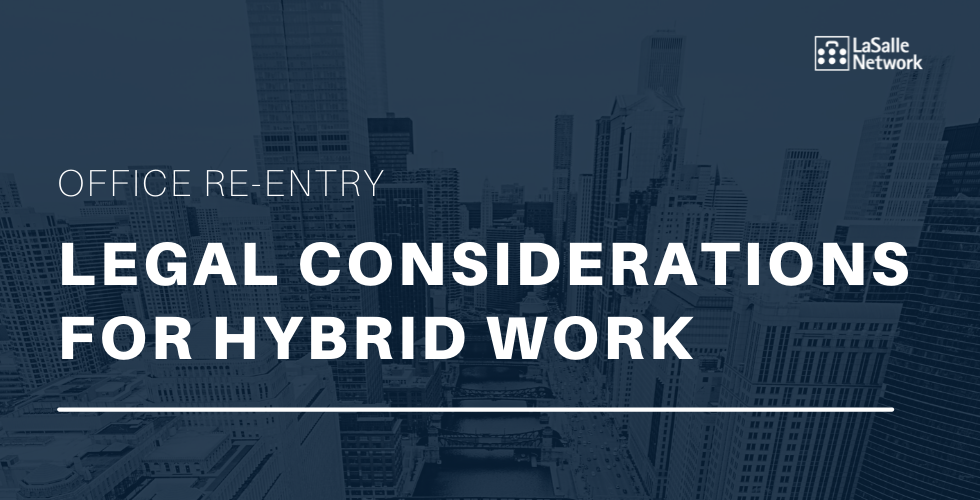In May 2021, we published the first installment of our Office Re-Entry Index, where we surveyed 350 Chief Executive Officers, Chief Operating Officers, and Human Resources and Finance leaders on sentiments and plans for returning to the office.
With new information and guidelines released by the CDC, we re-surveyed more than 350 company leaders in June 2021 to understand where their re-entry plans stood, and what has shifted. The results were published into the second installment: Office Re-Entry Index: Volume II.
According to our recent survey, majority of respondents foresee their businesses having a hybrid workforce one year from now, with 77% of companies planning a hybrid office for the future. There are several structures of hybrid workforces, including:
- Hybrid individuals: This is when individual employees work both in-office and remotely during the week.
- Hybrid teams: This is when within one team there are both fully on-site individuals and fully remote individuals.
- Hybrid departments: This is when there are full teams of remote workers and full teams of on-site staff within the organization.
Many businesses are choosing to establish specific days for employees to be on-site, versus allowing employees to choose, which is highly recommended to help avoid ostracizing employees based on when they choose to come in, creating definitive cliques within the office, and to avoid decreasing diversity within the office.
For companies planning to offer individuals the ability to work remotely part-time, according to our survey, 87% of respondents stated employees will work in-office 2 or 3 days a week. While planning for when employees will return to the office, many organizations predict they will be in-office Tuesdays through Thursdays with the option for employees to work from home Mondays and Fridays.
There are many elements of hybrid work employers should consider now to be adequately prepared to support their workforce, including potential legal ramifications to prepare for. While creating hybrid work policies, employers should be aware of legal risks that could come with a partially remote workforce. A few aspects to consider include, but are not limited to:
- Employee relocation and compliance with state regulations, including payroll taxes. Ensure employees communicate with Human Resources and their manager whenever there is a change of address, but especially if an employee is planning on relocating out of state.
- Inappropriate or unequal treatment. Employers should ensure there are equal opportunities for all workers
- Discriminatory work-from-home policies if employees feel they are being treated differently than others. If certain employees have access to perks, such as working from home, that others do not, consider keeping record of why and regulating how these decisions are made.
For further information on supporting a strong culture and leading a hybrid team, and other office re-entry considerations, download the Office Re-Entry Index: Volume II here.





